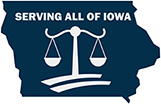- Waukee Motorcycle Accident Injury Attorneys
- Phone: 641-792-3595
- Directions
In the event of a tragedy, motorcycle injury lawyers become committed advocates for riders. Their specialization in motorcycle accidents equips them to navigate the legal landscape and ensure injured riders receive rightful justice and compensation.
Iowa's financial responsibility requirement applies to motorcycles as well as motorists, necessitating specific insurance coverage to protect riders and others on the road. Understanding the types of coverage available and the appropriate steps to take after an accident is crucial for Iowa motorcyclists. This article covers the required and optional insurance coverages, how to deal with aggressive drivers, and the importance of seeking medical treatment after even minor accidents.
Required Motorcycle Insurance in Iowa
Iowa mandates that motorcyclists carry liability insurance to meet the state's financial responsibility requirements. The minimum requirements are:
- $25,000 bodily injury liability insurance per person
- $40,000 bodily injury liability per accident
- $15,000 property damage liability
Liability insurance covers damages suffered by other motorists in an accident caused by the policyholder. If a motorcyclist is involved in an accident or stopped by a police officer, they must show proof of insurance. Failure to do so can result in license revocation. Importantly, auto insurance for cars does not cover motorcycles; each vehicle must have its own insurance policy.
Optional Motorcycle Insurance Coverages
Beyond the mandatory liability insurance, motorcyclists can purchase additional coverage to protect themselves in various situations. Some possible options include:
- Collision Insurance: Covers damages to the policyholder's bike in accidents involving vehicles, objects, or rollovers, regardless of fault.
- Comprehensive Insurance: Covers damage from fire, weather events, vandalism, floods, theft, and animal damage.
- Medical Expense Insurance: Covers medical expenses for the policyholder, regardless of fault, up to the policy limits.
- Uninsured/Underinsured Motorist Insurance (UM/UIM): Provides coverage if the policyholder is in an accident with someone without insurance, exceeds the at-fault driver's liability limits, or if the at-fault driver flees the scene.
For motorcyclists who customize their bikes, accessory or optional equipment coverage is available to cover modifications and enhancements. This coverage helps recover the costs of customizations in the event of an accident.
How to File a Motorcycle Insurance Claim
After an accident, motorcyclists should save the following:
- Accident report
- Witness contact information
- Other motorist's contact and insurance information
- Photographs of the accident scene and the bike
Notify your insurance company about the accident, including who was involved and the basics of what happened. If filing a liability claim with the at-fault driver’s insurance, inform that motorist’s insurance company as well. If fair compensation cannot be recovered from the other driver’s insurance, a lawsuit might be necessary. Coverage like collision or medical expense insurance may also help recover damages from your own policy.
Dealing with Aggressive Drivers on a Motorcycle
Knowing how to handle aggressive drivers is essential for motorcyclists' safety. Aggressive driving can include tailgating, yelling, using obscene gestures, speeding, and other dangerous behaviors.
- Don’t Respond to Road Rage: Avoid engaging with the aggressive driver. Responding to road rage can escalate the situation and increase the risk of an accident. Instead, keep your distance and remain calm.
- Move Over if Being Tailgated: If another driver is tailgating, change lanes and allow them to pass safely. Do not speed up to accommodate the tailgater, as this can be dangerous.
- Report the Driver: If necessary, pull over or exit the highway to let the aggressive driver pass. Consider reporting the driver to the authorities, especially if their behavior poses a danger. In Des Moines, the Non-Emergency Communications Center can be reached at 515-283-4811 and is staffed 24 hours a day.
Motorcyclists should also follow general safety tips, such as wearing a helmet and carrying a motorcycle safety kit.
Seeking Medical Treatment After a Minor Motorcycle Accident
It is imperative to seek medical attention after a motorcycle accident, even if injuries do not seem severe initially. Adrenaline can mask pain, and some injuries may not be immediately apparent.
Conditions such as internal bleeding, concussions, or hairline fractures can occur without visible damage. Requesting diagnostic tests like x-rays, CT scans, or MRIs can help identify these issues early. Pain might manifest hours or days later, so getting medical advice on managing potential discomfort is beneficial.
Consulting a Motorcycle Accident Attorney
The toll from severe motorcycle injuries can encompass substantial medical expenses and long-term care costs for victims and their families. Lost wages may compound matters, especially if employment becomes unrealistic for an extended period. Getting help from a motorcycle accident attorney allows the pursuit of comprehensive compensation, from financial damages and emotional distress such as pain and suffering.
Victims of these accidents should seek consultation with a motorcycle accident attorney, as damages may be extensive and recovery of compensation is important.
At Walker, Billingsley & Bair, our motorcycle accident attorneys can represent you in dealings with your insurance company, or when filing a personal injury claim. Set up your consultation now by calling 641-792-3595.

